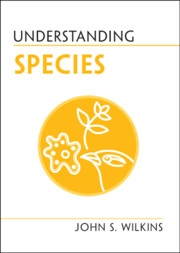Book contents
- Understanding Species
- Understanding Life
- Understanding Species
- Copyright page
- Reviews
- Contents
- Foreword
- Preface
- A Note
- 1 How Species Matter
- 2 Classifying Species
- 3 Making Species
- 4 A Short History of Species and Kinds
- 5 Philosophy and Species
- 6 Finding Species
- 7 Extinction, or How Species Are Lost
- 8 The Value of Species
- 9 Replacing ‘Species’
- 10 Concluding Remarks
- Summary of Common Misunderstandings
- References and Further Reading
- Figure Credits
- Index
2 - Classifying Species
Published online by Cambridge University Press: 06 April 2023
- Understanding Species
- Understanding Life
- Understanding Species
- Copyright page
- Reviews
- Contents
- Foreword
- Preface
- A Note
- 1 How Species Matter
- 2 Classifying Species
- 3 Making Species
- 4 A Short History of Species and Kinds
- 5 Philosophy and Species
- 6 Finding Species
- 7 Extinction, or How Species Are Lost
- 8 The Value of Species
- 9 Replacing ‘Species’
- 10 Concluding Remarks
- Summary of Common Misunderstandings
- References and Further Reading
- Figure Credits
- Index
Summary
It’s not enough to just list the clusters in the living world. One also needs to group clusters together within larger clusters. This process is sometimes referred to as ‘ordering the world’, and is called taxonomy, from the Greek word for ‘order’, taxis. In traditional taxonomy, begun in the sixteenth and seventeenth centuries, and formalised in the eighteenth century by Carl Linnaeus, this meant that species were grouped together in groups called in Latin genera (that’s the plural; the singular is genus). As a result, Linnaeus gave each species a two-part name (a binomial): its genus name (which always has a capital initial) and its species ‘epithet’ (which is always in lowercase). So, our species binomial is Homo sapiens; we are the species sapiens in the genus Homo. It’s kind of like a street address – you have the ‘general’ name (the ‘street’) and the ‘specific’ name (the ‘house number’) (see Box 2.1)
Keywords
- Type
- Chapter
- Information
- Understanding Species , pp. 11 - 34Publisher: Cambridge University PressPrint publication year: 2023



